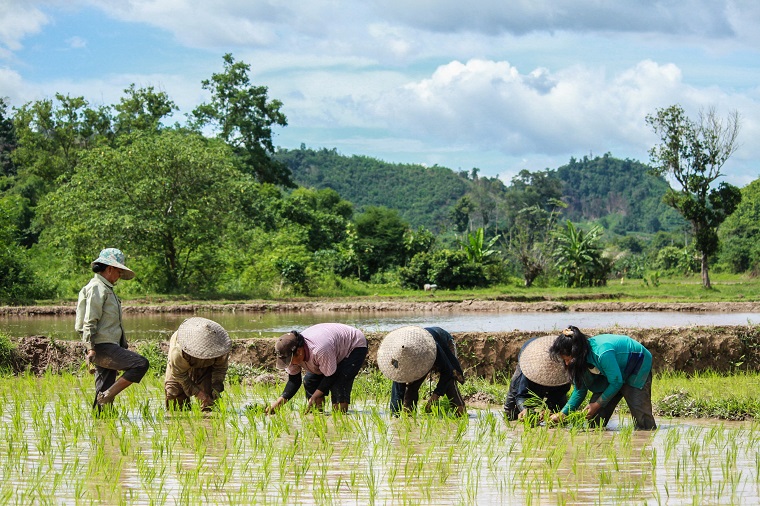Cambodia, Lao PDR Step Up Cooperation on Fisheries
Cambodia and the Lao People’s Democratic Republic have agreed to strengthen joint efforts to fight illegal fishing practices and increase fish stock in the Mekong-Sekong basin.
Cambodia and the Lao People’s Democratic Republic have agreed to strengthen joint efforts to fight illegal fishing practices and increase fish stock in the Mekong-Sekong basin.
PHNOM PENH, CAMBODIA (4 July 2018) — The Asian Development Bank’s Board of Directors has approved a $90 million loan to help Cambodia strengthen climate resilience and modernize the agriculture sector using advanced technologies.
PU’ER CITY, PEOPLE’S REPUBLIC OF CHINA (31 May 2018) — Senior agriculture officials from the six member countries of the Greater Mekong Subregion agreed to increase regional cooperation in food safety, boost the trading of climate-friendly agriculture products, and accelerate the implementation of the five-year GMS Strategy and Siem Reap Action Plan endorsed by the Second GMS Agriculture Ministers’ Meeting.
An innovative data fusion technique, which combines two freely available satellite data sources, is used to map paddy area and estimate rice yield in Thai Binh province, Viet Nam.
Singapore-based agribusiness group Olam International has secured $163 million in financing from the Asian Development Bank (ADB) and the Japan International Cooperation Agency (JICA), including $80 million in loans for its coffee subsidiary in Viet Nam.
The Asian Development Bank (ADB) has secured funding from the Green Climate Fund (GCF) for its climate change project in Cambodia.
A $10 million climate insurance program targets women farmers in Africa and Asia, including Cambodia and Myanmar.
The Siem Reap Action Plan will pave the way for the Greater Mekong Subregion to become a regional and global hub for good, sustainably produced food.

Lao PDR Deputy Minister of Finance Thipphakone Chanthavongsa (seated, right) and ADB Country Director for the Lao PDR (seated, left) Yasushi Negishi signed the additional grant agreement in Vientiane. Deputy Minister of Agriculture and Forestry Phouangparisak Pravongviengkham (standing, second from right) also attended the signing ceremony.
VIENTIANE, LAO PEOPLE’S DEMOCRATIC REPUBLIC (20 November 2017) —The Asian Development Bank and the Government of the Lao People’s Democratic Republic signed an agreement on 13 November for a $10 million grant as additional financing for a project that will enhance sanitary and phytosanitary capacity and improve food safety as well as plant and animal safety in the country.

Rural communities in the Greater Mekong Subregion are vulnerable to climate-related disasters, such as floods, droughts, and storms. Risk financing can help people protect their livelihood and productive assets better through a combination of risk retention, risk sharing, and risk transfer mechanisms. Photo: ADB.
Risk financing can help at-risk communities better cope with the economic costs of natural disasters and extreme weather.